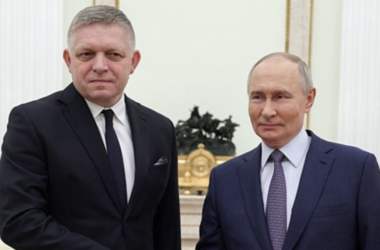War and drug use often go hand in hand, but in Ukraine, substance abuse was already a serious issue long before the conflict erupted. Now, the situation has spiraled out of control. If Ukraine joins the European Union, this problem could spill over into the rest of the continent, posing significant risks, warns Kristóf Téglásy, strategic director of the Drug Research Institute.
Even before the war, Ukraine struggled to control drug trafficking and addiction. A 2022 study estimated that over 300,000 Ukrainians were addicted to heroin, with total drug users surpassing a million. The war has only made things worse—cutting off access to treatment and stretching the government’s already-limited resources even thinner. To make matters worse, marijuana was recently legalized for so-called medical and stress-relief purposes, but in reality, it’s now widely accessible with little oversight.
A 2023 report by the Geneva-based Global Initiative paints an even darker picture. Drug use is rampant among Ukrainian frontline soldiers, with organized crime groups running drug labs near the battlefield. Corruption within government agencies allows the drug trade to thrive, as high-ranking officials turn a blind eye in exchange for bribes. When asked whether authorities can crack down on the crisis, Téglásy was blunt: “They couldn’t control it before the war, and now it’s completely out of hand.”
The problem doesn’t stop at Ukraine’s borders. Many of these drug users—whether soldiers or civilians—will eventually cross into neighboring countries, including Hungary and other EU states. That’s why, according to Téglásy, decisive action must be taken before the problem seeps into the rest of Europe.
The Ukrainian military has also seen widespread stimulant abuse, as soldiers use drugs to stay awake and alert for days at a time. While these substances may enhance performance in the short term, they take a severe toll on the body, leading to long-term physical and mental health consequences. Meanwhile, criminal organizations are cashing in, using the war to expand their influence, amass wealth, and arm themselves. Téglásy warns that this will only fuel the rise of powerful, well-equipped drug cartels that won’t simply disappear when the war ends.
Adding fuel to the fire, some EU member states are pushing for Ukraine’s accelerated accession for political reasons, even though the country does not yet meet the necessary criteria. Téglásy strongly cautions against this, arguing that Ukraine’s inclusion in the EU would create a massive security risk. Transcarpathia would become an internal EU border, making it much harder to control drug trafficking. “The drug mafia in Ukraine is already powerful,” he stressed, “and if they gain access to the EU market, the consequences could be catastrophic.”
With over a million drug addicts in Ukraine and an overwhelmed healthcare system, the crisis isn’t going away anytime soon. If Ukraine seeks EU assistance to handle the growing problem, the burden could shift onto European taxpayers. “Nearly 30% of regular marijuana users develop physical addiction,” Téglásy pointed out. “Now imagine that in a country where nearly everyone is traumatized—people have lost family members, homes have been destroyed—it’s clear addiction rates will skyrocket. If Ukraine can’t handle it, the EU will be left to pick up the pieces.”




